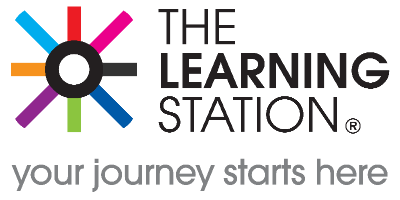There are 48 Further Education colleges in London that offer a wide range of courses including vocational, academic, technical and professional level qualifications.
According to the Association of Colleges, Further Education colleges in the UK have helped approximately 2.2 million students in improving their employability skills and broaden their career opportunities.
But what are Further Education colleges? And what type of courses do they offer?What is a Further Education College?
Further education refers to any study after secondary education, it is not a part of higher education, where a student goes to university to attain an undergraduate or post-graduate degree. Further Education colleges are attended by students of all ages, from the age of 16 and onwards. A large majority of students who attend are between the age of 16 and 18 years old.
Most FE colleges make use of LMI (Labour Market Information) and current contacts with both local and regional employers to ensure the qualifications they provide are in line with the job market.
The primary difference between a traditional school setting and a FE college is that a FE college has more of an adult environment. There's no uniform or rules as to what you should wear, although it is advisable that you look presentable. And usually, students call teachers by their first name.
Also, the learning environment in a FE college is much more different. Students in a FE college are expected to be more independent and engage in self-study. However, this doesn't mean that students are meant to feel isolated because almost every FE college will provide a supportive environment. And tutors will give extra support to those who need it the most.
What Courses Do Further Education Colleges Teach?
FE colleges provide a wider range of courses than sixth form colleges and schools. The following types of courses are usually offered by Further Education colleges:
GCSEs
Most FE colleges offer GCSE courses in English and Maths to those who have failed them during secondary school. Some FE colleges will offer GCSEs in other subjects, but this will vary.
A-levels
Similar to sixth form colleges, most FE colleges offer A-level courses. The subjects provided by FE colleges will vary, but the most common subjects like English, Maths, IT, humanities and sciences will be provided. For specialist A-level subjects like product design, you may find that only a select number of FE colleges will provide these courses.
Vocational Courses
These types of courses are related to a specific employment area such as health and social care, construction and child care. Examples of courses include:
Child Care
- Level 2 Certificate for the Children & Young People's Workforce (RQF)
- Level 3 Diploma for the Children & Young People's Workforce (RQF)
Construction
- Level 1 in Health and Safety in Construction | CSCS Labourer Course
- CITB Health and Safety Awareness Course
Health and Social Care
Apprenticeships
An apprenticeship is when a student undertakes paid employment to gain the necessary skills and experience while attending college either once or twice a week. Many apprenticeships tend to last for 3 years and on successful completion, apprentices will receive an accredited qualification.
Functional Skills
Functional Skills are GCSE equivalent qualifications. These types of qualifications are not academic in comparison to the conventional GCSE course. Instead, they are much more practical, and they are designed to help people become more employable. Functional skills are offered in the following key areas:
Recreational Learning
Some FE colleges offer courses in recreational activities such as ceramics, art and creative writing. These courses are often delivered on a part-time basis during evenings and weekends.
Not Every FE College Will Provide the Same Courses
Whatever you decide to do at a FE college, it is important to remember that not every college will provide the same variety of courses. So do take some time to go through their course prospectus.
A good way to look through colleges is to go to Google and type in something like “Further Education Colleges in North London” or something similar, depending on the area of London you live in. This will give you a list of all the colleges in your area.
How FE Colleges Provide More Flexibility
In addition to providing a more adult environment, some Further Education colleges provide the option of both in-class studying and distance learning. Of course, which study option you choose will depend on your preference.
If you prefer face-to-face interaction and a traditional learning environment, then in-class studying is your best option. If you prefer to study at your own pace and in your own time, or if you're holding a full-time job, then distance learning will be a better option for you.
Again, not every Further Education college will provide you with these options, so make sure you look into this.
Looking for Further Education Colleges in North London?
There are over 15 further education colleges in North London, and The Learning Station is one of the leading Further Education colleges in the area that offers both in-class learning and online distance learning.
To find out how The Learning Station can help you, please have a look through our course website or contact us directly on 020 8342 7210.



 Student Login
Student Login My Account
My Account